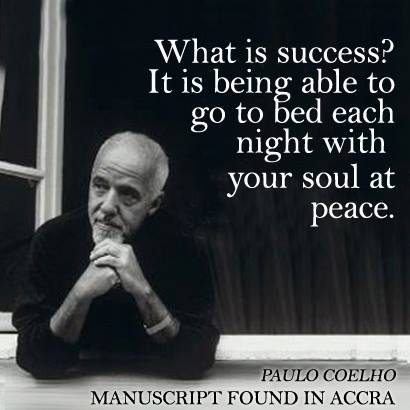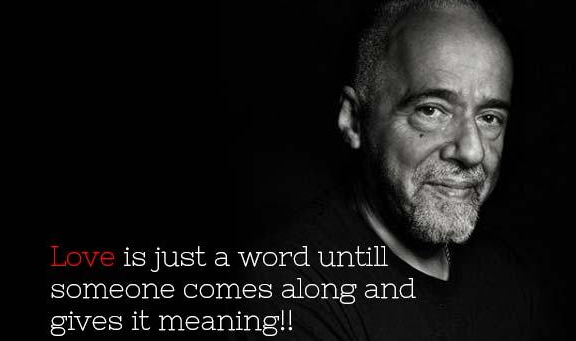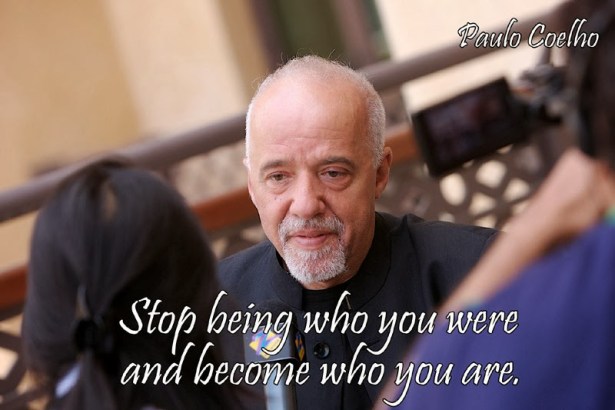 By the River Piedra I Sat Down and Wept by Paulo Coelho
By the River Piedra I Sat Down and Wept by Paulo Coelho
My rating: 3 of 5 stars
By the River Piedra I Sat Down and Wept (1994) by Paulo Coelho is a tale of one woman’s attempt to overcome her painful past and find true love in her childhood friend who has now become a spiritual leader able to heal people with a touch.
Reunited after many years apart, Pilar meets her man after a conference and throughout the following week she struggles to accept love in her heart and move toward a future that must take her away from her home in Zaragoza.

“I could have,” Pilar thinks. “What does this phrase mean? At any given moment in our lives, there are certain things that could have happened but didn’t. The magic moments go unrecognized, and then suddenly, the hand of destiny changes everything” (p 9).

And it is this hand of destiny that leads Pilar to the banks of the River Piedra, where the book opens and ends (and by far one of the more beautiful openings to a book I’ve ever read):
“By the River Piedra I sat down and wept. There is a legend that everything that falls into the waters of this river—leaves, insects, the feathers of birds—is transformed into the rocks that make the riverbed. If only I could tear out my heart and hurl it into the current, then my pain and longing would be over, and I could finally forget.

“By the River Piedra I sat down and wept. The winter air chills the tears on my cheeks, and my tears fall into the cold waters that course past me. Somewhere, this river joins another, then another, until—far from my heart and sight—all of them merge with the sea.
“May my tears run just as far, that my love might never know that one day I cried for him” (p 1).
And on those banks of the River Piedra Pilar sits to write out her love story that takes place from December 4 to December 10, 1993.

After the conference, Pilar and her love take a road trip into the mountains and she thinks to herself:
“No one can lie, no one can hide anything, when he looks directly into someone’s eyes. And any woman with the least bit of sensitivity can read the eyes of a man in love” (p 20).
And though she struggles with her own love for this man as she debates a more practical future back with her studies in her hometown, the spiritual leader, who remains nameless, knows exactly what he wants.

“‘I did find it. But when I returned to the plaza, I no longer had the courage to say what I had rehearsed. So I promised myself that I would return the medal to you only when I was able to complete the sentence that I’d begun that day almost twenty years ago. For a long time, I’ve tried to forget it, but it’s always there. I can’t live with it any longer.’
“He put down his coffee, lit a cigarette, and looked at the ceiling for a long time. Then he turned to me. ‘It’s a very simple sentence,’ he said. ‘I love you’” (p 22-23).

And in this magical moment, much like many other special moments that populate this rather meagre novel of only 180 pages, the reader senses art shaping and shadowing-out in fine details the raw portrait of life, complicated and beautiful.

“Sometimes an uncontrollable feeling of sadness grips us, he said. We recognize that the magic moment of the day has passed and that we’ve done nothing about it. Life begins to conceal its magic and its art.
“We have to listen to the child we once were, the child who still exists inside us. That child understands magic moments. We can stifle its cries, but we cannot silence its voice.
“The child we once were is still there. Blessed are the children, for theirs is the kingdom of heaven” (p 24).

Now in the mountains Pilar still struggles with falling in love because she knows how difficult and fearful it would be to give herself completely to love and then be rejected. No woman wants that, and so she hesitates on that delicate line between love and indifference, love-filled chaos and calm safety.
“It was raining in Bilbao. Lovers need to know how to lose themselves and then how to find themselves again. He was able to do both well. Now he was happy, and as we returned to the hotel he sang:
“Son los locos que inventaron el amor.
“The song was right: it must have been the lunatics who invented love…

“But love is much like a dam: if you allow a tiny crack to form through which only a trickle of water can pass, that trickle will quickly bring down the whole structure, and soon no one will be able to control the force of the current.
“For when those walls come down, then love takes over, and it no longer matters what is possible or impossible; it doesn’t even matter whether we can keep the loved one at our side. To love is to lose control” (p 30-31).
And Pilar remains guarding her heart, watching her man closely, unsure of her future, of his love, of the paths set before them. But like a true gentleman, her great love stays true to his word and the course set before the both of them.

“He stopped fooling with his glass and looked at me. ‘No, I’m not mistaken. I know you don’t love me.’
“This confused me even more.
“‘But I’m going to fight for your love,’ he continued. ‘There are some things in life that are worth fighting for to the end.’
“I was speechless.
“‘You are worth it,’ he said.
“I turned away, trying to pretend that I was interested in the restaurant’s décor. I had been feeling like a frog, and suddenly I was a princess again.
“I want to believe what you’re saying, I thought to myself. It won’t change anything, but at least I won’t feel so weak, so incapable” (p 42-43).

And as the two lovers take long walks in the snow and mountains, enjoy drinking wine next to an old well in the center of a very old village, Pilar continues to battle her own heart, fighting every attempt to give in to love and the joy she knows she so desperately needs and deserves.
“I was tired of playing the child and acting the way many of my friends did—the ones who are afraid that love is impossible without even knowing what love is. If I stayed like that, I would miss out on everything good that these few days with him might offer.
“Careful, I thought. Watch out for the break in the dam. If that break occurs, nothing in the world will be able to stop it” (p 47).

And yet Pilar is still afraid of love, to giving herself over completely. She explains:
“‘But then you get used to that person, and you begin to be completely dependent on them. Now you think about him for three hours and forget him for two minutes. If he’s not there, you feel like an addict who can’t get a fix. And just as addicts steal and humiliate themselves to get what they need, you’re willing to do anything for love’” (p 54).

And Pilar finally comes face-to-face with the Other, a part of herself that holds her back from experiencing the fullness of joy and love in her life, that part of people who criticizes, complains and judges and keeps people from taking risks for the sake of change, for the sake of happiness, for the sake of love.
“I began to imagine how I would like to be living right at that moment. I wanted to be happy, curious, joyful—living every moment intensely, drinking the water of life thirstily. Believing again in my dreams. Able to fight for what I wanted.
“Loving a man who loved me.
“Yes, that was the woman I wanted to be—the woman who was suddenly presenting herself and becoming me…
“I looked at the Other, there in the corner of the room—fragile, exhausted, disillusioned. Controlling and enslaving what should really be free: her emotions. Trying to judge her future loves by the rules of her past suffering.
“But love is always new…
“When the Other left me, my heart once again began to speak to me. It told me that the breach in the dike had allowed the waters to pour through, that the wind was blowing in all directions at once, and that it was happy because I was once again willing to listen to what it had to say.
“My heart told me that I was in love. And I fell asleep with a smile on my lips” (69-70).

I wish I could tell you that Pilar found her great love, as many wish they would, but as I explained earlier: the book opens and ends with Pilar sitting by the River Piedra and weeping and writing out her love story as only she could.

But if we have learned anything about true love, Shakespeare said it best: Never did the course of true love run smooth; and the same goes for the rivers we kneel next to and cry for those times we held too tightly to love only to let it slip through our fingers and fall into the waters below, carrying it out to sea far, far from the days that were once filled with sunshine and laughter. May each of us find our great love in life and when we do, let us look to the heavens with blessings and thanks upon our lips to know how truly special life can be if we are strong enough and brave enough to open our hearts once more.

By the River Piedra I Sat Down and Wept by Paulo Coelho is a strong recommend.
Keep reading and smiling…














I for all time emailed this website post page to all my friends, because if like to read it afterward my friends will too.
Pingback: The Alchemist (1988) by Paulo Coelho & Your Personal Legend | CG Fewston
Pingback: Paulo Coelho Quotes Pictures Wallpapers Hd Images UthMate
Hi Sir, good day 🙂 I’m Jio from Philippines. I would like to ask some help about from this book (By the river Piedra…), I just wanted to ask if you know the real name/ real identity of the said Pilar’s lover in the story. Thank you so much 🙂
Jio, that is such a great question and I had to go back and double check and confirm if my thoughts were true… Pilar’s lover in the book remains nameless (as some books do have nameless characters)… I also confirmed this with a review by Kirkus Reviews (extremely reliable) and they had to say this: “This is mostly a two-character novel, with a priest used for exposition and as a means of filling in the background of Pilar’s beloved (who remains nameless, being referred to simply as “he” in the narrative) as a Charismatic healer,” (link: https://www.kirkusreviews.com/book-reviews/paulo-coelho/by-the-river-piedra-i-sat-down-and-wept/)… also, the book, The Sympathizer – which won the 2016 Pulitzer Prize – by Viet Thanh Nguyen, also has a character who remains nameless throughout the book. Hope this helps. Keep reading and smiling…